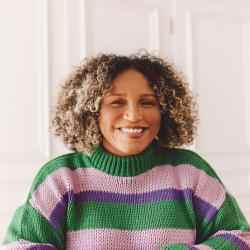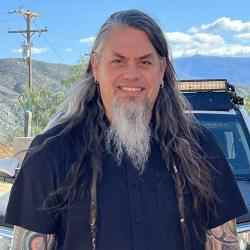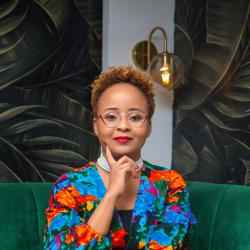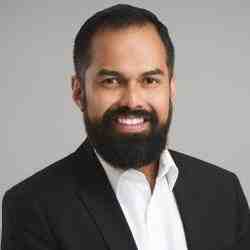Introduction
Ken Banks is bridging the digital divide in the citizen sector by bringing the tech revolution to the last mile: To the isolated, small, and resource-poor organizations in the developing world. Having been one of the first innovators using mobile phones for social change, Ken is now creating a rapidly scaling user-led movement that enables local changemakers to co-create the solutions they need to solve their own problems, based on simple and readily available technology: Ordinary mobile phones. The core platform has been downloaded over 20,000 times by users in more than 70 countries, inspired a number of sector-specific spin-offs developed by user citizen organizations (COs), and is reaching millions of people.
The New Idea
Ken’s observation is that the mobiles-for-social-change movement is failing to reach a huge proportion of COs on the ground. Their remoteness, as well as their lack of voice and resources, effectively locks them out of the productivity gains of the technological revolution. This revolution has spread unevenly: The expectation that the technology trickles down is flawed. Ken is building the architecture to reach the last mile. He puts the needs of the user above the specialist, to build a principles—and not technology—focused movement. Ken’s solution is to focus relentlessly on the most basic of all technology, in the context of an open source movement, which gives the greatest development power to the users who can then spread solutions among themselves.
The first building block of the movement is a simple and free piece of software which allows COs to engage in mass two-way communication using SMS. The platform works with the most basic equipment, namely the simple mobile phones already pervasive in the developing world. It has a wide range of potential functions determined by the user, which typically involve sending information out to stakeholders; enabling stakeholders to request information on demand; data gathering and analysis; and making basic transactions. The software—FrontlineSMS—was used for citizen monitoring of the 2007 Nigerian and 2009 Afghan elections; it is being used in agricultural projects in Banda Aceh to inform farmers of fish prices; in Pakistan for flood relief efforts; to give people access to legal services in Kenya; in domestic violence COs in the U.S., and in many other contexts. Ken believes that professionals should not need to install or maintain software and that the focus of software should be on instant usability even in difficult situations. Thousands of COs in over 70 countries have downloaded the software and are using it in ways they themselves design and determine.
However, the importance of FrontlineSMS lies not in the technology, but in the power shift it enables. In tailoring the platform, Ken considered how it could best foster user-led innovation and the spreading of solutions between users. Structured as a self-governing group of peers that use and develop the software, FrontlineSMS has the largest user community of any non-profit-focused SMS tool in the world. The open source software is locally customizable so that anyone who has more specific needs can take the software and add in additional functions, potentially sharing this with the rest of the network of users. In contrast to technology which is built by technologists in universities in the developed world, innovations are designed at the periphery, where they are most relevant, and then return to the center for wider distribution within the network. Ken is demonstrating to users that “something is possible”, inspiring and enabling them to design what they really need. For example, when a group of nurses in Malawi were using the software, they found that they were unable to add more credit to their phones when they were out in the communities. The nurses worked out a system for adding this function into the software, and now this solution can be spread through the central hub to other users.
The Problem
Across the world, hundreds of thousands of small local grassroots COs conduct vital work in the areas of health, education, economic development, and civic engagement. Despite the advances in communications technology over the past decade, many of those working in the most resource-poor environments still face great communications barriers. The well documented revolution in mobile phone technology and high levels of mobile phone penetration have introduced many possibilities. There is an increasing range of SMS based tools and initiatives to tackle communication problems; but for the “bottom of the pyramid” of the CO world, many of these tools remain out of reach and often unsuited to their needs. The “mobile phone revolution” is failing to reach certain segments and their needs: The need to send SMS to large numbers of people, access the appropriate tools to manage a high volume of contacts who also need to be able to send messages back, and then analyze the data. Currently such tools exist mostly on the Internet (e.g. Clickatell), which is already a significant barrier in many developing countries. In addition, software is often expensive to buy, may require a credit card to purchase message credits, and requires significant technical skills on the part of COs. For those “off the radar” and working in remote areas, the alternative is to send texts one at a time from a mobile phone—hardly an efficient solution—or invest significant talent and money in upgrading their systems—a great drain on limited resources. Great technology is available, however, it fails to meet the needs of end users among the citizen sector.
The root problem is that technological solutions are often not locally devised and locally informed; therefore, the technology designers are missing the real needs—and possibilities—of end users. Thus, there is a great deal of exciting technological developments that miss out on the smaller COs—the challenge is not finding the right technology for the problem in abstract, but finding the right technology for the people that use it. Donors’ enthusiasm for and willingness to fund technologically exciting initiatives often fuels the development of the wrong kinds of programs—as Ken calls it, the “iPads for Africa” approach.
The Strategy
Ken’s strategy rests on inspiring and empowering others to take ownership over the development of technology for social change. He is doing this by continuing to develop the platform for the widest possible audience, identifying and tackling the remaining barriers to access (e.g. cost of SMS), and providing the space and nurturing for users to take control of the movement.
At the core of FrontlineSMS is the user community—the largest online user community of any non-profit focused mobile phone based tool. The 2,500 members are self-organized into eight different groups of particular interest (election monitoring, economic development, media, and so on), and from different corners of the world they discuss how to use the tool for their particular purposes and needs. Some of these discussions lead to more significant collaborations, for example between different organizations interested in citizen election monitoring. Key to the development of the movement are FrontlineSMS’s sister organizations. As other innovators are inspired to develop sector-specific uses of FrontlineSMS, they are adopted and mentored by Ken. They immediately benefit from the use of the FrontlineSMS brand and Ken’s ability to fast-track their connections with funders and supporters. In turn, the success of the sister organizations also amplifies the central brand in a symbiotic relationship. With the most advanced spin-offs, Ken is developing a fiscal sponsorship agreement which allows the organizations to support each other financially while operating independently. While potentially risky in a conventional business sense, this open and generous approach is critical to the growth of an open source movement like the one being built by Ken.
Ken is also developing a strong strategic core to support the wider movement. His organization is currently looking at options for a commercial version of FrontlineSMS for businesses who want to use the software. Realizing that a range of businesses all over the world were keen to use the software because of the ease of utility, Ken can cross-subsidize the free use of the software by COs with the commercial users.
The ability to spread solutions within the network has proven successful. Ken’s work has fostered a number of sector-specific spin offs: FrontlineSMS:Medic was designed by people working in health care clinics in Africa; FrontlineSMS: Credit was created by microfinance entrepreneurs for use by microfinance institutions; FrontlineSMS:Radio to allow better interaction via mobile between radio stations and their listeners. Ken adopts the most promising offshoots into the FrontlineSMS family, mentoring the social entrepreneurs behind them and promoting their solutions with the strong FrontlineSMS brand and distributions network. This dramatically increases the pool of simple, mobile phone based “solutions” for all users around the world. This approach to software development pushes power and expertise into the hands of local changemakers, while networking them with other technological changemakers around the world to create a wider and more appropriate array of solutions.
Ken is also developing an opportunity to broaden the use of the software through “power users” who can quickly spread the tool to more communities. These are large development organizations such as USAID and the UN World Food Program where staff on some projects have started using FrontlineSMS in their work.
To support the most scaled rollout, while also keeping the main kiwanja hub focused on serving the smaller organizations, Ken will place FrontlineSMS trained staff within these larger agencies to promote and oversee rollout to other projects they run. Such “premium” users get access to extra expertise and development from their in-house FrontlineSMS expert, while financially supporting the core organization. Ken is constantly exploring other opportunities for “carrier” organizations to develop problem-specific solutions.
Ken is steering the whole field to a user-led focus. He is a prolific speaker, blogger, writer, and partnership builder. Ken uses a range of channels to spread his message about how the technology movement needs to develop; for example, working with Ashoka’s Changemakers to co-produce a guide to using mobile phones for social change. Ken is a figurehead in the movement of mobile phone enabled change and seeks every opportunity to showcase the people and examples which spread his approach to opening the technology-for-change market.
Ken’s next plan is to build a local “dealership” network of FrontlineSMS approved users around the world. As local users develop expertise on the more advanced uses of the program, they can become a local, on-the-ground expert, meaning all enquiries from their area are directed to them, and the experts are automatically informed when there is a download in their area. By also selling the mobile phones and other equipment users will need, the dealership network will support an economic development that mirrors the spread of the technology, encouraging local experts to develop both a socially and economically entrepreneurial strategy to using the software. Ken continues to create other initiatives to lower barriers to access to use mobile phones.
In a field where change is fast-paced and the exact technological innovations are unpredictable, Ken’s principle-led and bottom-up movement will direct the course of the sector without attempting to define the tools.
The Person
Ken grew up on the island of Jersey. Before reaching his teen years, he taught himself how to program computers, and he proceeded to earn his pocket money from the local computer club by writing applications to help children with reading difficulties. Ken’s IT skills and entrepreneurial approach to learning about and running new systems meant he was in high demand, and he built up a successful IT career from his teenage experiences. However, Ken felt unsettled and restricted in Jersey. He resolved to seek another life path. His first trip to Zambia as a volunteer with a development project in 1993 marked the beginning of a frontline apprenticeship in the possibilities and needs of many COs operating in difficult circumstances in the developing world. Ken was both impressed by the hugely important work done by these COs with very limited resources and keenly aware of the infrastructural challenges that held them back in spreading their impact. Ken was dramatically changed by his time in Zambia and decided to retrain as an anthropologist; his concern with understanding people on their own terms infuses his entire approach to technology.
Ken’s observation that mobile phones had the potential to affect positive social change came out of an experience working on a conservation project in South Africa (2003 to 2004). While working with the local community and staff of the implementing organization, he recognized that a huge problem (the challenge of communicating with stakeholders that are spread over a large area), could be tackled by using the technology people were increasingly getting in their hands, namely, mobile phones. His thinking led to the design of a simple piece of software to enable staff to easily communicate with their stakeholders. Thus, the concept behind FrontlineSMS was born. One of the earliest people working with mobile phones for social change, Ken realized the huge potential of this approach to organizations working both in different geographies and different sectors. He soon became interested in how such a tool could ultimately be transferable to situations and contexts. Ken set up kiwanja.net (the umbrella organization for all Ken’s projects) to focus on developing FrontlineSMS and the range of other projects he had initiated. His dedication to developing his idea has seen him living in a van in a car park at Stanford so that he could stretch his initial grant money to re-develop FrontlineSMS further. Ken’s leadership style is informed by the same principles that drive his work—he is open and democratic, and keen to see other people take ownership and leadership in the fields they know best. As a mentor to other social entrepreneurs working in the field (e.g. an Ashoka/Staples youth competition winner), Ken is concerned with supporting a pipeline of other people to develop as entrepreneurs in their own right, to take the movement forward.

 Tile image
Tile image


